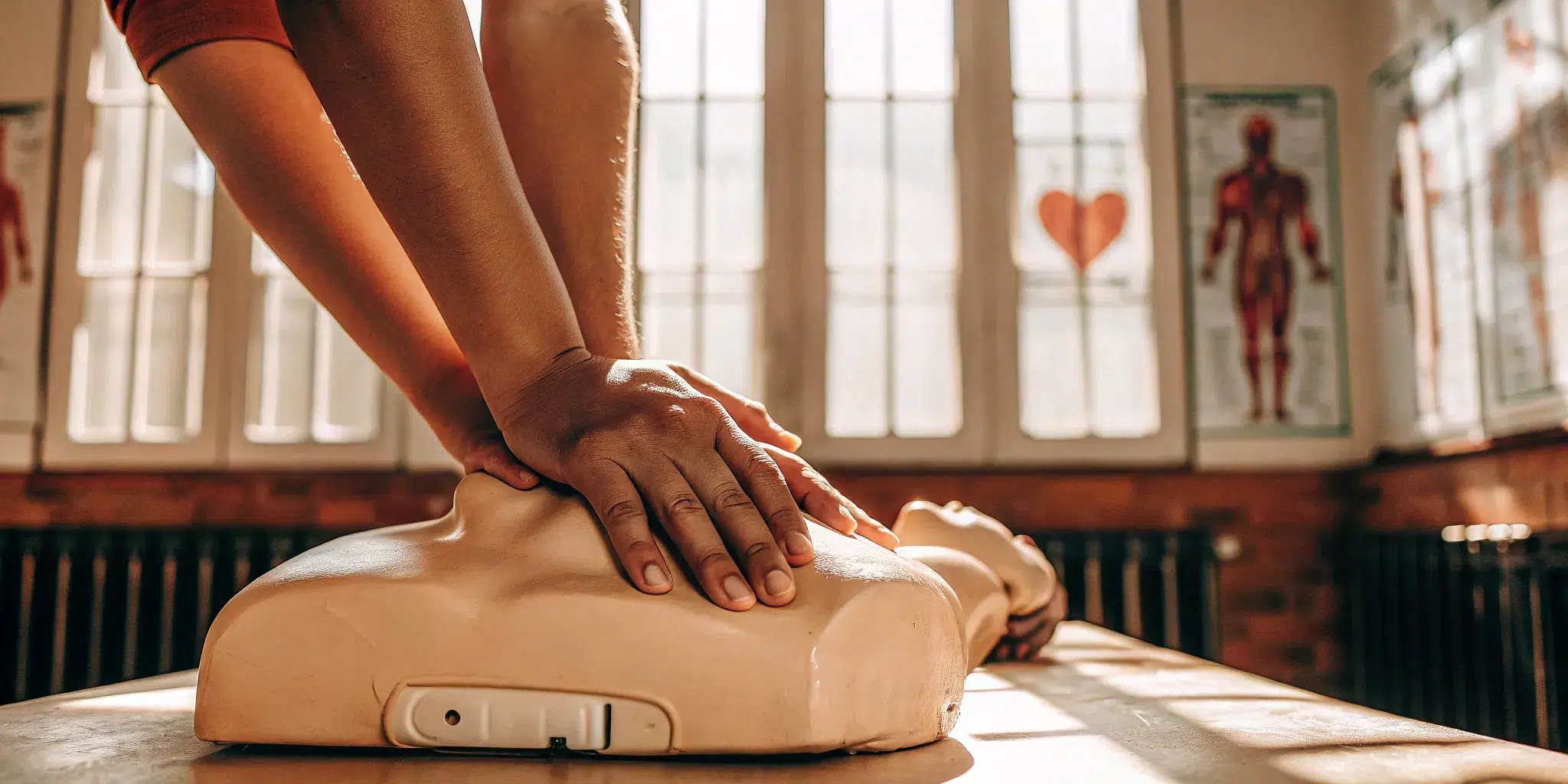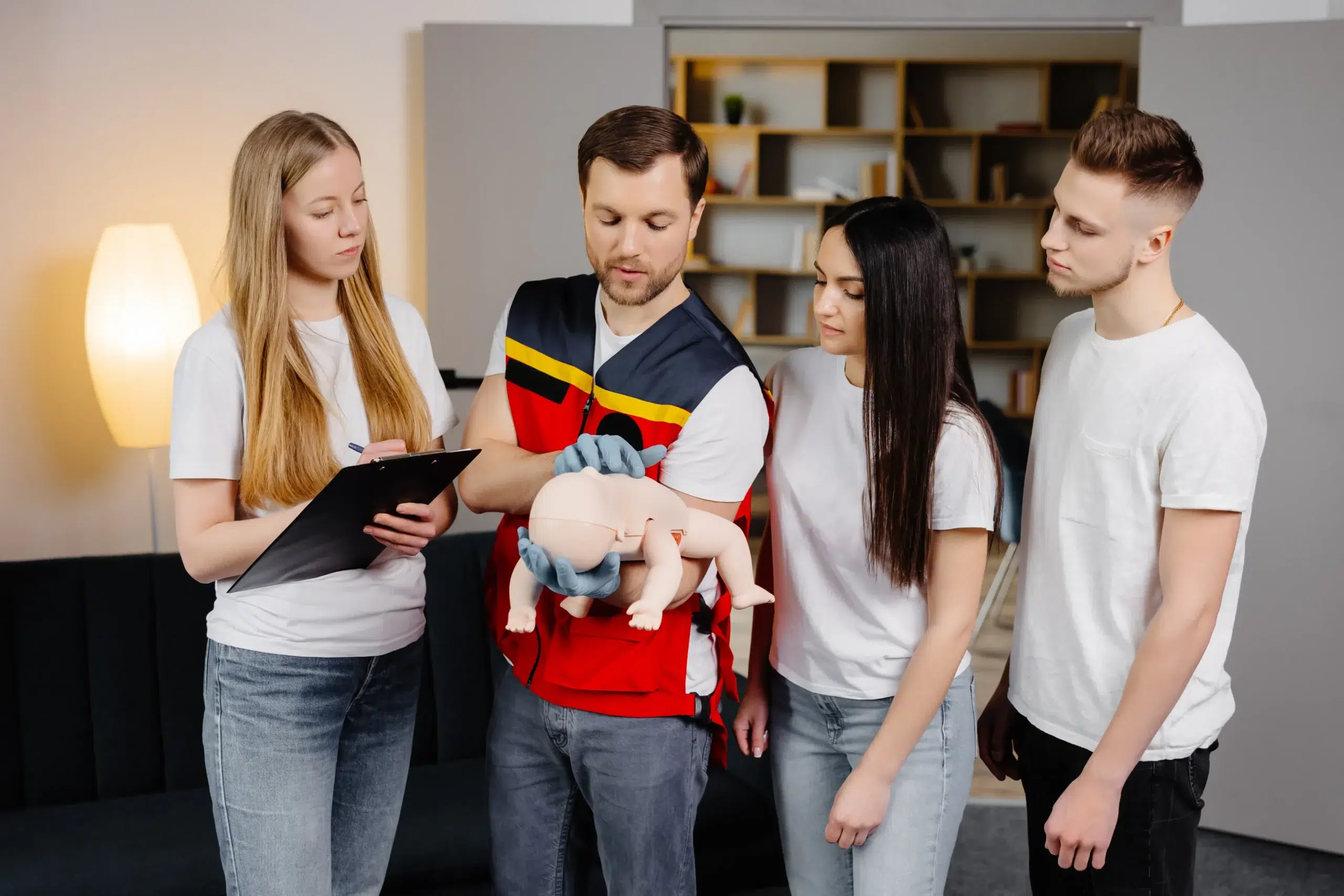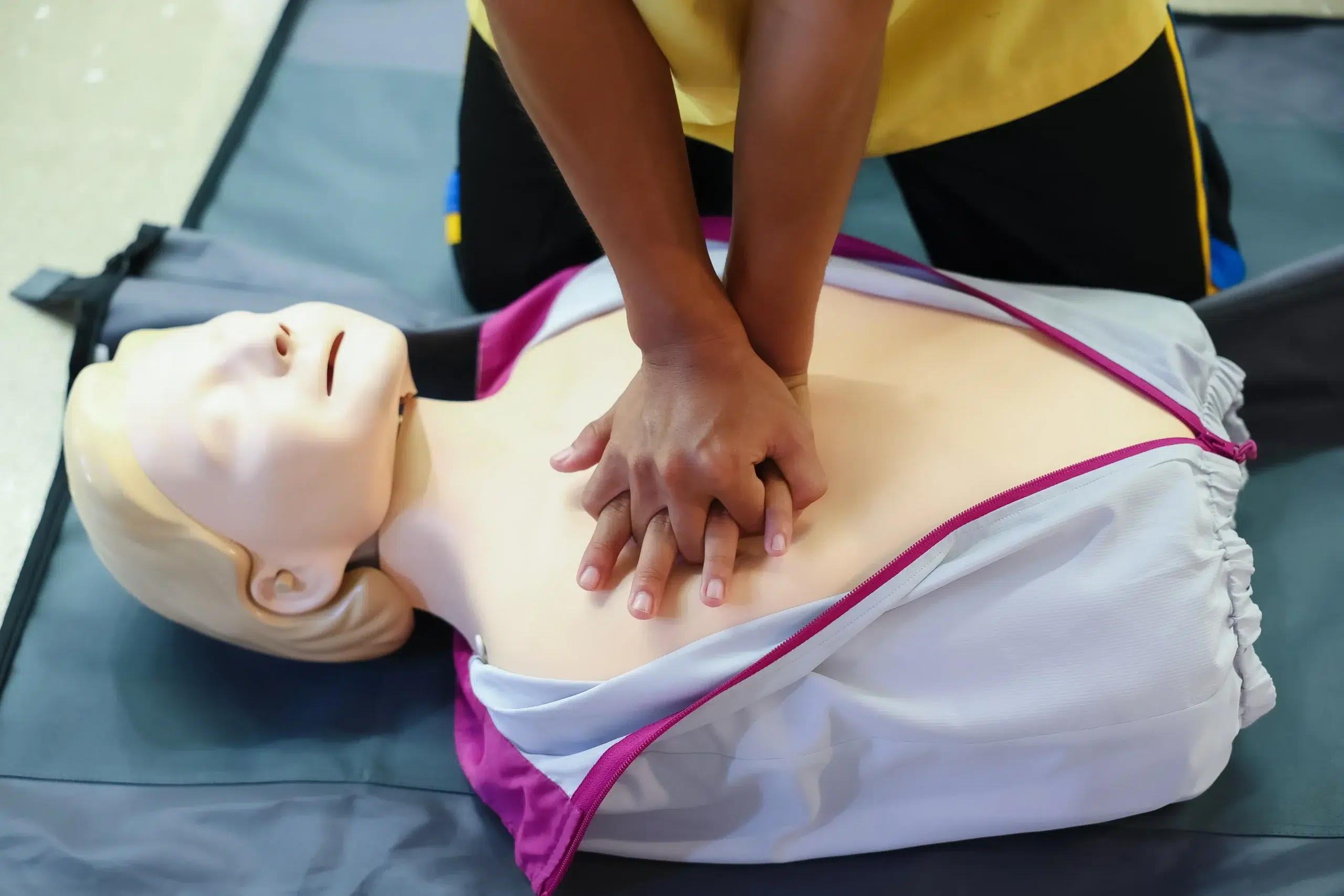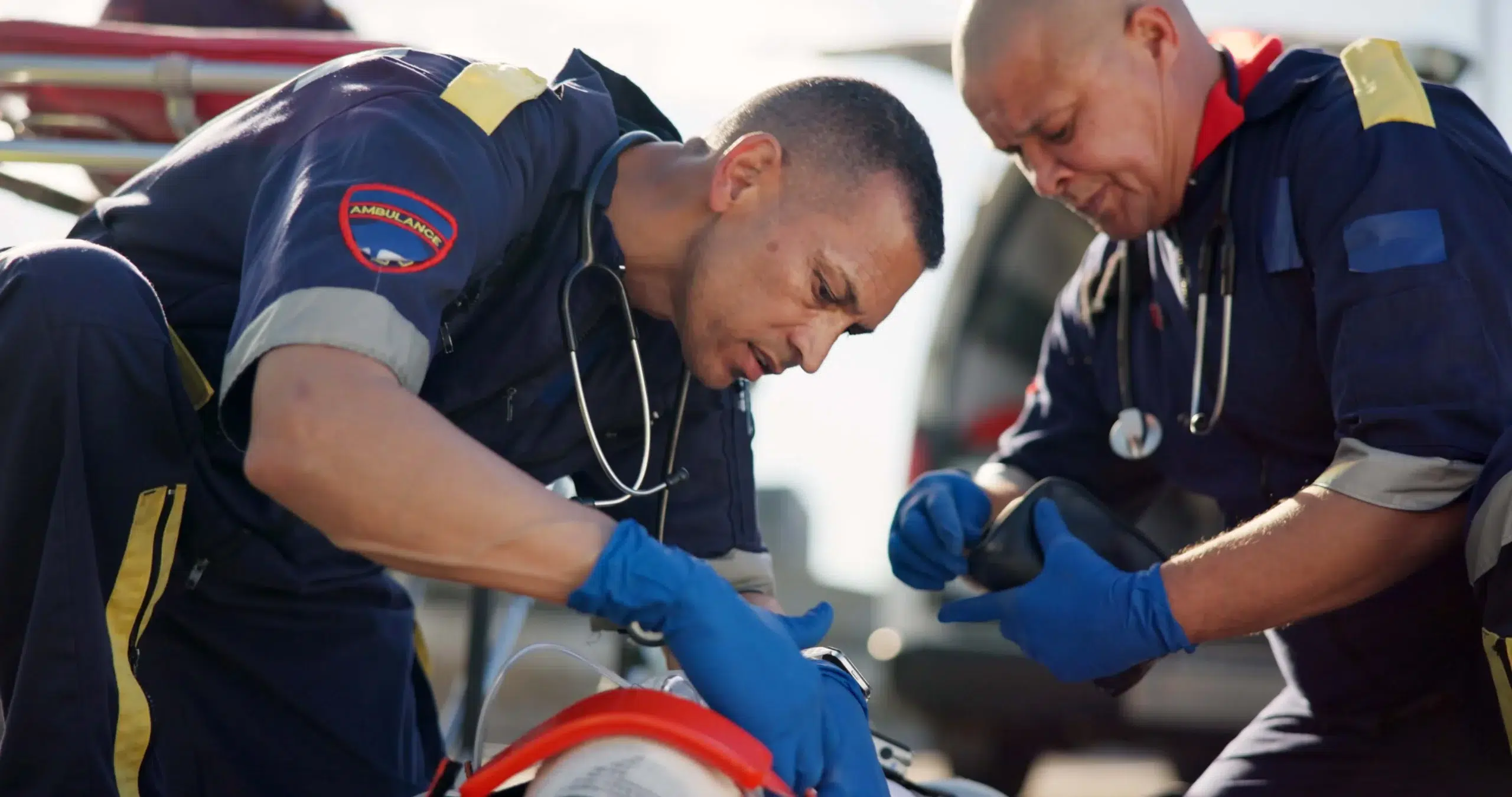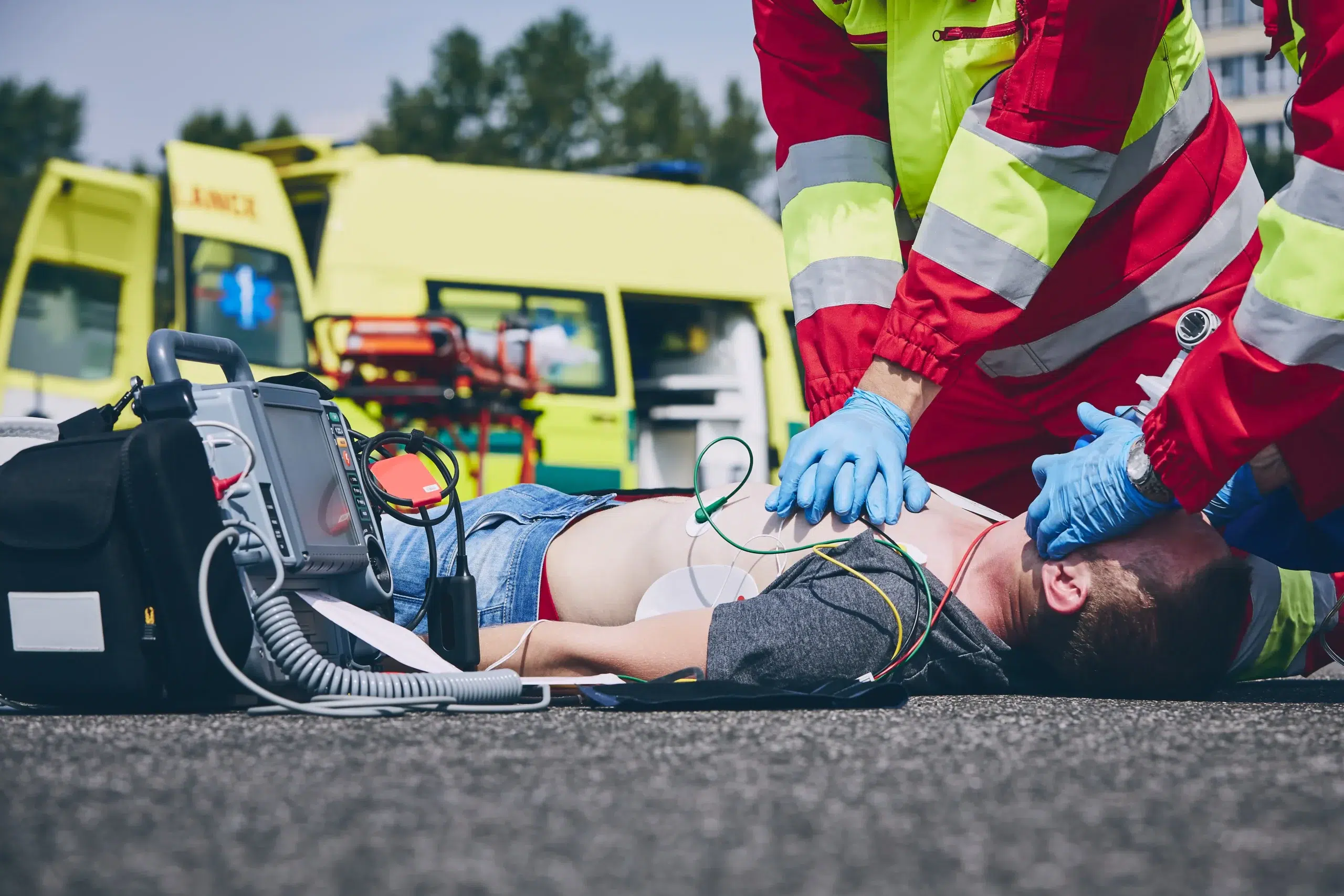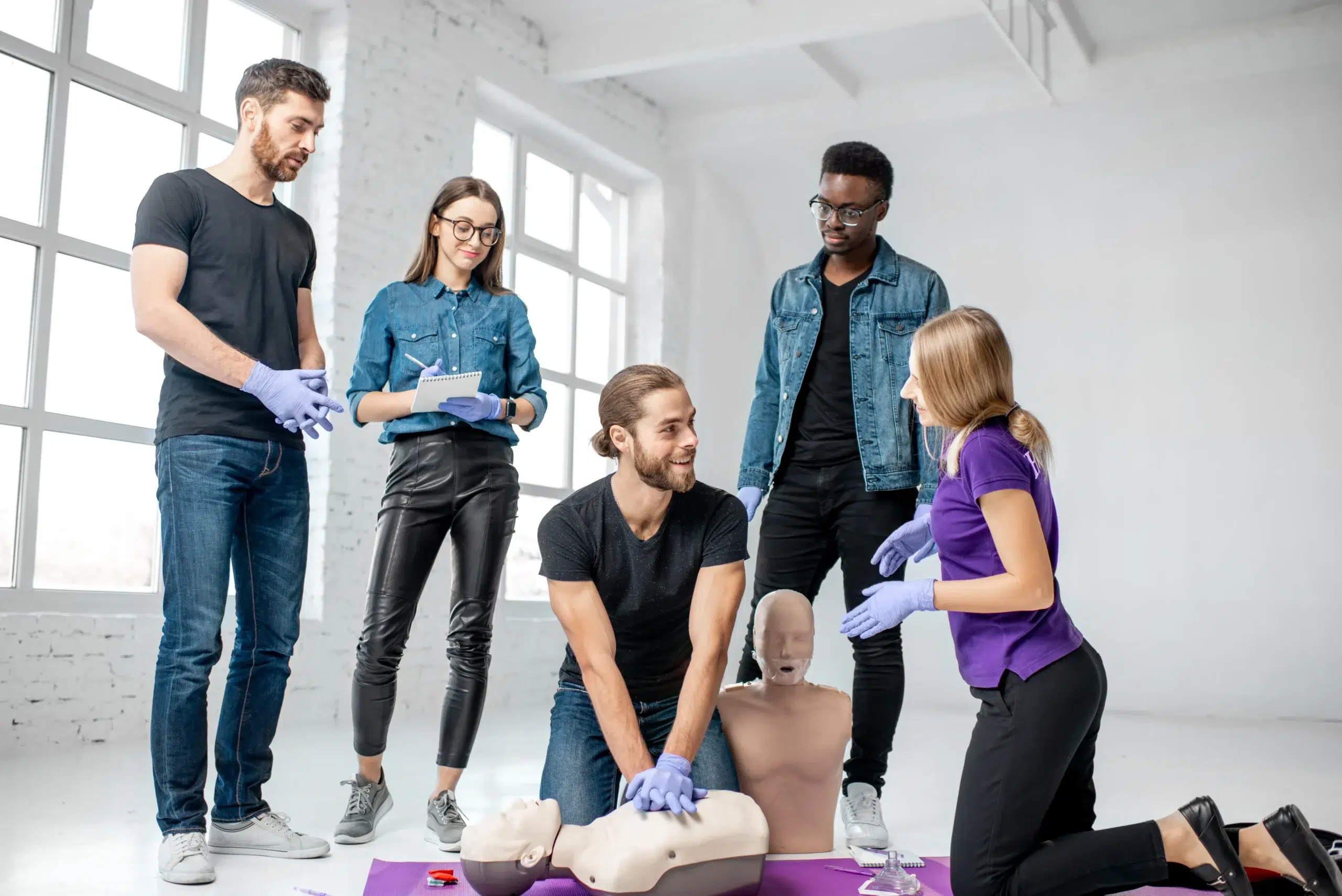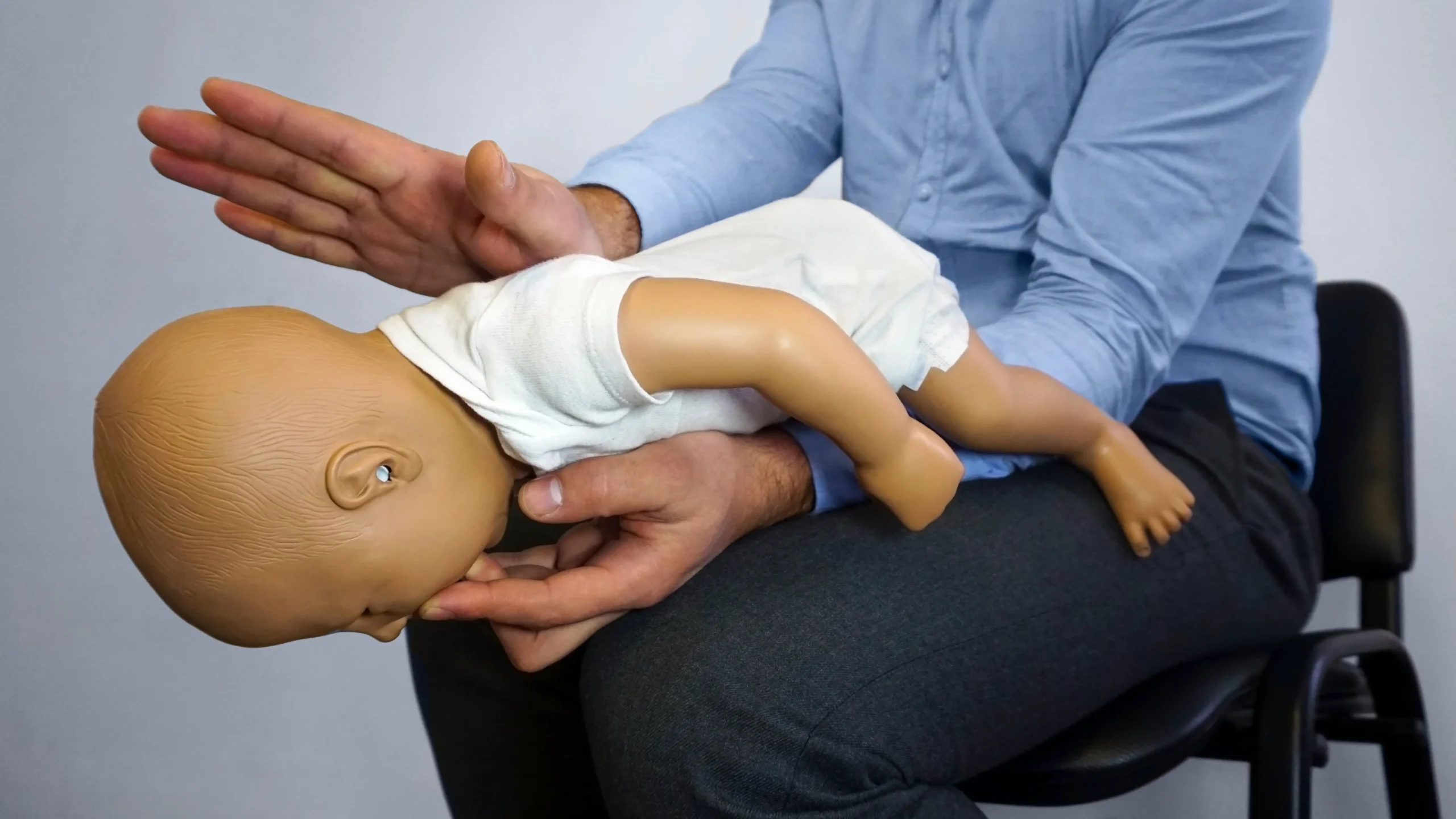CPR certification in San Jose offers more than just a credential—it’s a life-saving skill that empowers you to act confidently in emergencies. This guide simplifies the process of getting CPR certified, providing clear explanations of different certification types, including BLS, ACLS, and PALS. We’ll explore the benefits of in-person training versus online options, discuss associated costs and available discounts, and debunk common CPR certification misconceptions. We’ll also highlight reputable CPR training providers in San Jose, such as Safety Training Seminars, the American Red Cross, and others, to help you find the perfect fit. Finally, we’ll emphasize the importance of maintaining your certification and offer practical tips for retaining those essential skills.
Key Takeaways
- CPR certification empowers you to save lives: Learn essential skills to respond to cardiac emergencies and provide immediate assistance until professional help arrives. Find the right certification level for your needs, whether you’re a healthcare provider or simply want to be prepared.
- Choose the best CPR training format for you: From in-person classes with hands-on practice to flexible online options, select a course that fits your learning style and schedule. Consider providers like Safety Training Seminars, offering various formats and a low price guarantee.
- Stay prepared by keeping your CPR skills current: CPR certifications typically expire after two years. Regularly refresh your knowledge and skills through practice and renewal courses to maintain your confidence and ability to respond effectively in emergencies.
What is CPR Certification in San Jose?
CPR certification in San Jose gives you the skills to respond to cardiac emergencies. It’s a credential verifying you’ve completed a course covering essential life-saving techniques for adults, children, and infants. These courses teach you how to recognize the signs of a cardiac arrest, perform chest compressions, and provide rescue breaths. Organizations like the American Red Cross and the American Heart Association offer CPR training. We also provide a range of American Heart Association courses in Newark, serving the broader San Jose area.
Getting CPR certified means you’re prepared to help someone in a critical situation. It empowers you to act quickly and confidently, potentially making a life-or-death difference. CPR can keep blood flowing to the brain and other vital organs until professional medical help arrives. This immediate intervention can significantly improve the chances of survival and minimize long-term health consequences. For more information on our CPR and First Aid certification courses, visit our CPR and First Aid page. We also offer discounted group classes to make training more accessible. Check out our low price guarantee for more information on affordability.
CPR Certification Types
Knowing which CPR certification level is right for you can feel overwhelming. This section breaks down the different types of CPR certifications available, so you can choose the best fit.
Basic Life Support (BLS)
Basic Life Support (BLS) certification is the foundation for anyone working in healthcare. It’s also a smart choice for those who want to be prepared for emergencies involving adults, children, and infants. BLS courses cover core life-saving skills like high-quality CPR, using an AED, and relieving choking. The emphasis on teamwork makes it especially relevant for healthcare providers working in teams, but the skills are valuable for anyone. Our BLS courses cover all these essential skills, including CPR and First-Aid training.
Advanced Cardiovascular Life Support (ACLS)
Advanced Cardiovascular Life Support (ACLS) certification goes beyond the basics of CPR. It’s designed for healthcare professionals who manage cardiopulmonary arrest and other cardiovascular emergencies. ACLS training dives deeper into pharmacology, airway management, and reading EKG rhythms. It teaches systematic approaches to patient care, using algorithms to guide treatment decisions in critical situations. If you’re a doctor, nurse, paramedic, or other healthcare provider working in acute care settings, ACLS certification is often a job requirement. We also offer information on related topics like RQI classes.
Pediatric Advanced Life Support (PALS)
Pediatric Advanced Life Support (PALS) certification focuses on the specific needs of infants and children facing respiratory or cardiovascular emergencies. Like ACLS, PALS uses algorithms to guide treatment, but with a focus on pediatric dosages and physiological differences. This certification is essential for pediatricians, pediatric nurses, emergency medical technicians, and other healthcare providers who regularly work with children. Consider our low price guarantee when choosing your certification course. We also offer group discounts to make training more accessible.
Top CPR Certification Providers in San Jose
Finding the right CPR certification provider is an important first step. Here are a few reputable options in San Jose:
Safety Training Seminars
Safety Training Seminars, a woman-owned AHA Training Center, offers a range of CPR and First Aid training courses designed for both individuals and organizations. The focus on hands-on learning, led by certified instructors, ensures you gain practical experience. You receive your certification card, valid for two years, upon completion. They also offer discounted group rates and a low price guarantee. Check their schedule for BLS courses in Newark, conveniently serving the Fremont, Newark, and San Jose areas.
American Red Cross
The American Red Cross provides CPR and First Aid classes in San Jose. Their smaller class sizes create a comfortable learning environment where you can easily ask questions. The Red Cross Scientific Advisory Council reviews all course materials and practices to ensure you’re learning the most up-to-date techniques. Certification is valid for two years, with renewal courses available as your expiration date gets closer.
Emergency and Health Training Center
The Emergency and Health Training Center offers American Heart Association-certified courses in CPR, BLS, ACLS, PALS, and First Aid. They hold classes in San Jose and throughout the Bay Area, designed for professionals in healthcare, construction, childcare, and other industries. You’ll receive your certification, valid for two years, on the same day you complete your class.
American Heart Association
The American Heart Association offers a variety of CPR training and certification options throughout California, including in-person, online, and blended learning. Their in-person classes include hands-on skill sessions and provide a two-year certification that meets OSHA requirements.
San Jose City College
San Jose City College offers CPR certification courses as part of their health and safety programs. These courses work well for both healthcare professionals and the general public. Learn more about their programs and certifications on their website.
Choose the Right CPR Certification Format
Deciding on the right CPR certification format depends on your learning style, schedule, and preferences. Let’s explore in-person, online, and blended learning options to help you make the best choice.
In-Person Training Benefits
In-person CPR training offers a highly interactive and engaging learning experience. Led by certified instructors, like those at our Newark facility, these courses provide personalized feedback and allow you to ask questions in real-time. The small group setting fosters a comfortable learning environment, encouraging interaction with fellow participants. Most importantly, in-person training emphasizes hands-on practice, allowing you to develop and refine your CPR technique under the direct supervision of an expert. This tactile approach builds muscle memory and confidence, ensuring you’re prepared to respond effectively in a real-life emergency.
Online Certification Advantages
Online CPR certification provides flexibility and convenience, especially for those with busy schedules. Reputable online programs, often offered by organizations like the American Heart Association, deliver comprehensive instruction using videos, interactive simulations, and downloadable resources. This format lets you learn at your own pace, revisiting material as needed. Online certification can be a valuable option for refreshing your skills or meeting specific requirements. It’s crucial to choose a program that aligns with your learning goals and includes a hands-on component. Check out our page on RQI classes for more information on online renewal options.
Blended Learning Options
Blended learning combines online instruction with in-person skills sessions. This format allows you to complete the theoretical coursework online at your convenience, then attend a hands-on session to practice your skills and receive personalized feedback. Blended learning offers flexibility while still providing the essential hands-on training crucial for mastering CPR techniques. This approach caters to diverse learning styles and is an attractive option for those seeking a comprehensive and adaptable learning experience. The Red Cross offers blended learning CPR courses that combine online modules with in-person skill sessions.
CPR Certification Costs and Value
CPR certification is an investment in life-saving skills, and understanding the associated costs and long-term value is essential. Let’s break down the typical price ranges, available discounts, and why maintaining your certification matters.
Average Certification Prices
The cost of CPR certification varies depending on the provider, the type of certification you need (like Basic Life Support (BLS)), and your location. Generally, BLS certification costs around $70, with Advanced Cardiovascular Life Support (ACLS) ranging from $140 to $190, and Pediatric Advanced Life Support (PALS) typically around $190. Remember, these are estimates, and it’s always best to check with specific providers, like Safety Training Seminars, for their current pricing. Our low price guarantee ensures you’re getting the best value.
Group Discounts and Special Offers
Looking to certify a group? Many training centers, including Safety Training Seminars, offer discounted rates for groups. This is a great option for businesses, community groups, or families who want to learn together. Also, check if student discounts are available. Organizations like the American Red Cross sometimes offer online discounts for course materials or training—it’s worth checking their website for current promotions.
Certification’s Long-Term Value
CPR certifications are typically valid for two years. While it might seem like just another certificate to keep track of, remember that these skills can save lives. Studies show that CPR skills decline most rapidly within the first year after training. Regular practice and refresher courses are key to staying sharp and confident in your abilities. Consider your certification an ongoing commitment to being prepared for emergencies and contributing to a safer community. Renewing your certification ensures your skills are current and you’re ready to respond effectively when needed.
The CPR Certification Process
Getting your CPR certification is straightforward and often quicker than people realize. Here’s what you can expect:
Course Duration and Content
CPR certification courses typically last between two and four hours, depending on the specific course type and learning format. You’ll cover essential life-saving techniques, including chest compressions, rescue breaths, and how to use an automated external defibrillator (AED). Many courses also incorporate training on first aid basics. For more information, check out our CPR and first-aid certification courses.
Hands-On Practice
In-person CPR training emphasizes hands-on practice. You’ll work with mannequins to simulate real-life scenarios, allowing you to develop muscle memory and confidence in your abilities. This practical experience is crucial for effectively administering CPR during an emergency. Our BLS courses in Newark provide this essential hands-on training.
Exam and Same-Day Certification
Most CPR courses conclude with a skills test to ensure you’ve grasped the techniques. The focus is on demonstrating proper form and understanding the key principles. Upon successful completion, you’ll receive your CPR certification the same day. This certification is typically valid for two years, after which you’ll need to renew your certification. We offer a low price guarantee on our courses, making them accessible for everyone. For larger groups, check out our group discounts.
Maintain Your CPR Certification
Keeping your CPR certification current is just as important as getting certified in the first place. Regularly refreshing your skills ensures you’re always ready to respond effectively in an emergency.
Certification Validity
CPR certifications are typically valid for two years. Knowing your certification’s expiration date is key to staying prepared. Mark it on your calendar and set reminders so you’re not caught off guard. Staying current with your CPR certification demonstrates your commitment to providing high-quality care and maintaining essential life-saving skills.
Renewal Process
As your certification nears its expiration date, look into renewal courses. These courses offer a streamlined way to refresh your knowledge and skills without repeating the entire certification process. CPR renewal courses are readily available and often cover the latest guidelines and techniques. This ensures you’re up to date on the most effective methods for providing CPR. At Safety Training Seminars, we offer convenient BLS renewal courses in Newark to help you maintain your certification. We also offer a variety of other courses, including CPR and First Aid training and discounted group CPR classes.
Skill Retention Tips
Even with a valid certification, regular practice is crucial for retaining those essential CPR skills. Studies show that skills can decline over time without consistent practice, impacting your ability to perform effectively during a real emergency. Consider incorporating regular refreshers into your routine. These can include practicing on a mannequin, reviewing the steps with a colleague, or taking a refresher course to reinforce your knowledge and maintain muscle memory. For more helpful advice, take a look at these tips for retaining first aid and CPR skills. Staying sharp with your CPR skills can make all the difference when every second counts. We also encourage you to learn more about RQI classes and our low price guarantee.
How CPR Certification Impacts Your Life
Getting CPR certified isn’t just about checking a box; it’s about equipping yourself with skills that can significantly impact your life and the lives of those around you. From everyday scenarios to career opportunities, the benefits of CPR certification are extensive.
Lifesaving Skills for Everyday Use
CPR certification empowers you to respond effectively during emergencies. While we all hope to avoid such situations, accidents and medical crises can occur unexpectedly. Whether a family member experiences a cardiac event at home or a stranger collapses in public, possessing CPR skills can be the difference between life and death. Knowing how to assess the situation and provide immediate assistance until professional help arrives can dramatically increase the chances of survival. CPR training provides the knowledge and confidence to act decisively when it matters most. It’s about being prepared, not just for strangers but for the people you love. Understanding and addressing common CPR misconceptions is crucial for empowering individuals to act confidently and effectively in these critical situations.
Career Advancement
In many professions, CPR certification is a valuable asset, and often a requirement. Healthcare providers, educators, first responders, lifeguards, and personal trainers are just a few examples of fields where CPR certification is essential. Maintaining a current certification demonstrates your commitment to safety and preparedness, making you a stronger candidate for jobs and promotions. It signals to employers that you possess crucial life-saving skills and can handle pressure in critical situations. Even if not explicitly required, CPR certification can distinguish you from other applicants and create new opportunities. Consider adding this valuable credential to your resume to enhance your career prospects. For those seeking in-person training, remember that hands-on learning is often more effective for skill retention and building confidence, as highlighted by the Australian Training Institute.
Confidence in Emergencies
Beyond the practical skills, CPR certification instills confidence and a sense of preparedness that extends beyond the classroom. Knowing you can respond effectively in a medical emergency reduces anxiety and empowers you to take control in stressful situations. This confidence can carry over to other areas of your life, fostering greater self-reliance and resilience. Regular practice and renewal courses are essential for maintaining these critical skills and ensuring you’re always ready to assist when needed. Understanding the facts about CPR is vital for effective administration during a critical resuscitation, as explained by CPR Baton Rouge. Invest in your peace of mind and empower yourself with the skills and confidence to make a difference.
Common CPR Certification Misconceptions
It’s easy to get confused by inaccurate information about CPR certification. Let’s clear up a few common misconceptions so you can make informed decisions about your training.
Online vs. In-Person Certification
One common misconception is that online CPR training is just as effective as in-person training. While online courses offer a convenient way to learn the theory, they often miss a crucial element: hands-on practice. In-person CPR training lets you physically practice techniques under the guidance of a certified instructor. This builds muscle memory and confidence, making you better prepared to respond effectively in a real emergency. The in-person setting also allows for valuable interaction and peer learning.
Who Needs CPR Certification?
Another misconception is that you must be certified to perform CPR. Anyone can and should administer CPR in an emergency. Good Samaritan laws protect those who offer assistance. However, formal CPR certification is highly recommended. It provides comprehensive training, equipping you with the skills and knowledge to perform CPR correctly and confidently. Certification also demonstrates to employers and others that you’ve received proper training.
CPR vs. BLS Certification
Many people use CPR and BLS interchangeably, but they are distinct certifications. CPR typically refers to basic life support techniques for the general public. BLS certification is designed for healthcare providers and other professionals who respond to medical emergencies. BLS covers more skills, including using an AED, bag-mask ventilation, and team dynamics during resuscitation. While both are valuable, BLS offers more advanced training for those in healthcare settings.
Get CPR Certified in San Jose
Getting CPR certified is straightforward, but choosing the right course and provider matters. Here’s how to get started:
Research Providers and Compare
Take time to research different CPR training providers in San Jose. Consider organizations like the American Red Cross, which offers various CPR and First Aid classes, often with small class sizes for more personalized instruction. The Emergency and Health Training Center provides American Heart Association-certified courses, including CPR, BLS, ACLS, and PALS, at various Bay Area locations. If you’re near Newark, Fremont, or San Jose, check out Safety Training Seminars for convenient and affordable options, including our low price guarantee. Comparing providers helps you find the best fit for your schedule, budget, and learning style.
Choose the Right Course
CPR courses vary in length and content. A basic CPR/AED course typically lasts a few hours and covers the essentials for responding to emergencies. Healthcare providers and first responders may require more advanced training like BLS, ACLS, or PALS certification. The American Red Cross offers a helpful guide outlining the differences between BLS and CPR certification to help you decide. Remember that CPR certifications are typically valid for two years, so factor in renewals. You can find more information on various CPR and First Aid courses on the Red Cross website.
Prepare for Certification
Once you’ve chosen a course, prepare by reviewing any provided study materials. Consistent practice is key to retaining these life-saving skills. Even after you’re certified, regular refreshers are a good idea. Check out these tips for retaining your first aid and CPR skills. Knowing you’re prepared will make you more confident and effective in a real emergency.
Related Articles
- Northern CA CPR Directory – Newark CPR Classes
- CPR Certification in Newark: Your Complete Guide – Newark CPR Classes
- BLS Courses in Newark: Your Complete Guide – Newark CPR Classes
- AHA ACLS Classes in Newark, CA – Newark CPR Classes
- AHA PALS Classes in Newark, CA – Newark CPR Classes
Frequently Asked Questions
How quickly do CPR skills decline after training?
Studies show that CPR skills decline most rapidly within the first year after training. That’s why regular practice and refresher courses are so important for maintaining your skills and confidence.
What’s the difference between online and in-person CPR training?
Online CPR training offers flexibility and convenience, allowing you to learn at your own pace. However, in-person training provides hands-on practice with mannequins and personalized feedback from certified instructors, which many find invaluable for building confidence and muscle memory.
If I’m not a healthcare professional, do I really need to be certified in CPR?
While anyone can perform CPR in an emergency, formal certification is highly recommended. It provides comprehensive training, equips you with the skills and knowledge to perform CPR correctly, and demonstrates to others that you’ve received proper training. It also helps you stay up-to-date on the latest guidelines.
How much does CPR certification cost, and are there any discounts available?
CPR certification costs vary depending on the provider, the type of certification, and your location. Many providers offer discounts for groups, students, or online courses. It’s always a good idea to check with the specific provider for current pricing and available discounts. Safety Training Seminars, for example, offers a low price guarantee and group discounts.
How do I choose the right CPR certification course for my needs?
Consider your current knowledge, career goals, and schedule when choosing a course. Basic CPR/AED courses cover the essentials, while healthcare providers often require more advanced certifications like BLS, ACLS, or PALS. Think about whether online, in-person, or blended learning best suits your learning style. Also, research different providers to compare costs, schedules, and course content.
